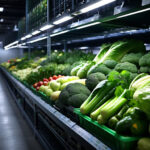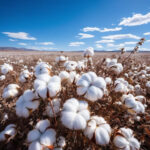Every year on February 10, World Pulses Day is observed worldwide. This day holds significance as it recognizes the importance of pulses as a sustainable food source with a lower environmental footprint compared to other food crops. Pulses, including beans, lentils, and chickpeas, play a crucial role in addressing global challenges such as food security, nutrition, and environmental sustainability.
1. Introduction
World Pulses Day, established by the United Nations General Assembly in 2019, is celebrated annually on February 10th. This day serves as a platform to raise awareness about the nutritional benefits and sustainable aspects of pulses. Pulses are not only nutritious but also environmentally friendly, making them a vital component of sustainable food systems.
2. Significance of World Pulses Day
World Pulses Day acknowledges the pivotal role of pulses in achieving the United Nations’ Sustainable Development Goals (SDGs). Pulses contribute to food security, promote sustainable agriculture, and support economic development, particularly in rural areas. By celebrating World Pulses Day, we recognize the importance of pulses in building a more resilient and sustainable future for all.

3. Understanding the Theme: Pulses – Nourishing Soils and People
The theme for World Pulses Day 2024 is ‘Pulses: Nourishing Soils and People.’ This theme emphasizes the dual benefits of pulses in enhancing soil health and nourishing communities. Pulses have a lower water footprint and can withstand droughts and other climate-related challenges, making them indispensable for adapting to and mitigating the effects of climate change.
4. The Role of Pulses in Sustainable Agriculture
Pulses play a crucial role in sustainable agriculture by promoting soil health and biodiversity. They enhance soil fertility, reduce the need for synthetic fertilizers, and help in weed management, thus contributing to environmentally friendly farming practices. Additionally, pulses support crop rotation, which improves soil structure and reduces soil erosion.
5. Linking Soils and Pulses: International Initiatives
The International Year of Soils in 2015 and the International Day of Pulses in 2016 highlighted the symbiotic relationship between soils and pulses. These initiatives aimed to raise awareness about the importance of soils for food security and the nutritional benefits of pulses in sustainable food production. By promoting the synergy between soils and pulses, these initiatives contribute to achieving the SDGs and advancing global sustainability efforts.

Img Src:X/FAO,Land,Soil and Water
6. Celebrating World Pulses Day: Why It Matters
World Pulses Day provides an opportunity to promote the consumption and production of pulses globally. By celebrating this day, we can raise awareness about the nutritional benefits of pulses, promote sustainable farming practices, and support rural livelihoods. Additionally, WPD encourages innovation and research in pulse production and consumption, leading to the development of more resilient and nutritious pulse varieties.
7. Benefits of World Pulses Day
- Raises awareness about the nutritional benefits of pulses
- Promotes sustainable agriculture and soil health
- Supports economic development and rural livelihoods
- Encourages innovation in pulse production and consumption
- Strengthens global food security and nutrition
8. How You Can Participate
You can participate in World Pulses Day by:
- Sharing information about pulses on social media using the hashtag #WorldPulsesDay
- Organizing events or activities to promote pulse consumption and production in your community
- Supporting local farmers who grow pulses and purchasing pulse-based products
- Advocating for policies that promote sustainable agriculture and food security
9. Conclusion
World Pulses Day celebrates the power of pulses to nourish both soils and people. By recognizing the importance of pulses in sustainable agriculture and food systems, we can work towards achieving a more resilient and equitable world for future generations.
Click Here For More Information
10. FAQs
1. What are pulses?
Pulses are a group of edible seeds that belong to the legume family. Examples include beans, lentils, chickpeas, and peas.
2. Why are pulses important for sustainable agriculture?
Pulses improve soil health, reduce the need for synthetic fertilizers, and support crop rotation, making them essential for sustainable farming practices.
3. How do pulses contribute to food security?
Pulses are nutritious, affordable, and environmentally friendly, making them a valuable source of food for communities around the world, especially in regions prone to food insecurity.
4. What is the significance of the theme for World Pulses Day 2024?
The theme ‘Pulses: Nourishing Soils and People’ highlights the dual benefits of pulses in enhancing soil health and providing nutritious food for communities, emphasizing their role in sustainable development.
5. How can I get involved in celebrating World Pulses Day?
You can participate in WPD by raising awareness about pulses, supporting local farmers, and advocating for policies that promote sustainable agriculture and food security.










